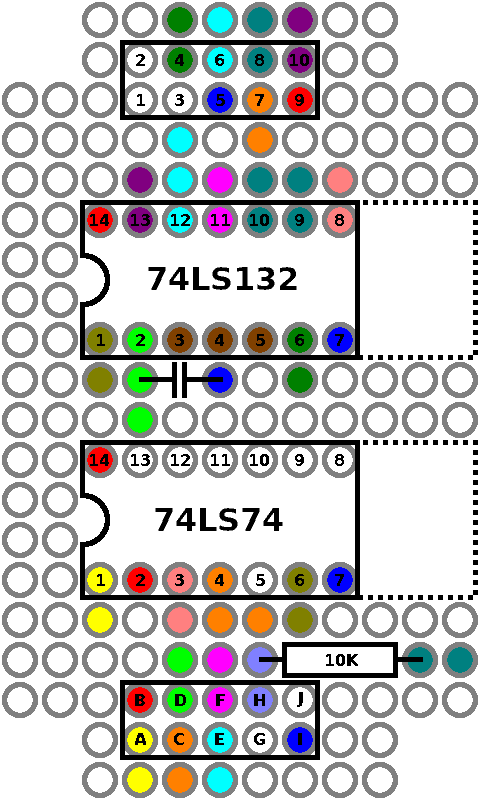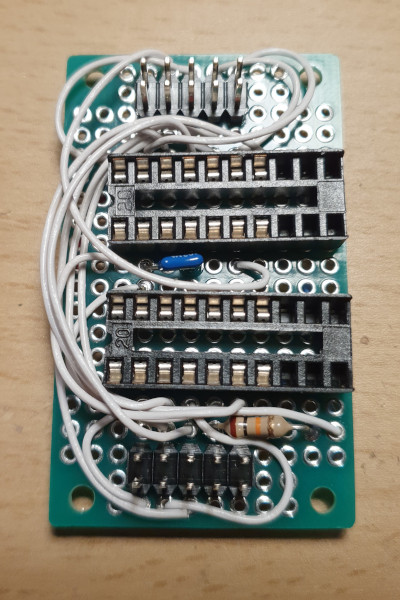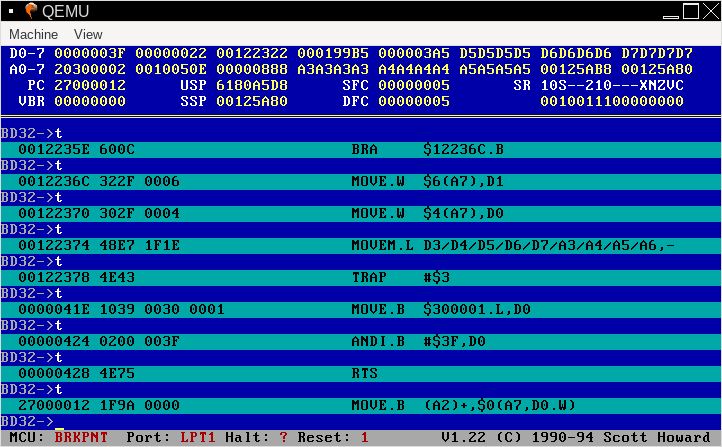Motorola BDM Debugger in DOS QEMU
I have some boards with a Motorola 68332 MCU (which later became Freescale and then NXP) that have a Motorola 68000 core. There is a debugging port on these boards known as "BDM" or "Background Debug Mode" which is very useful.
I have managed to connect to this port using an adapter that can be connected to a standard PC parallel port. There seems to be two versions of this adapter found on the Internet, one using a 74LS74 flip-flop and another using a 74LS76 flip-flop.
I built the 74LS74 variant using a prototype circuit board. To help with this I converted the schematic to another form to show where to connect all the wires using color coding:

Here is a picture of the finished adapter without the logic chips. 14-pin DIP sockets should have been used but I only had 20-pin DIP sockets available:

Here are the signals on the pin header that can be connected to a parallel port on a PC:
|-------|------------|--------|
| DB-25 | Signal | Header |
|-------|------------|--------|
| 17 | STEP_OUT | A |
| 10 | PWR_DN/VCC | B |
| 14 | RSTOUT | C |
| 1 | DSCLK | D |
| 15 | FREEZE | E |
| 12 | DSO | F |
| 16 | DSI | H |
| 11+18 | NC/GND | I |
|-------|------------|--------|
Here are the signals going to the target BDM port:
|---------|--------|
| Signal | Header |
|---------|--------|
| DSCLK | 4 |
| VSS/GND | 5 |
| FREEZE | 6 |
| RESET | 7 |
| DSI | 8 |
| VDD/VCC | 9 |
| DSO | 10 |
|---------|--------|
I have put MS-DOS 6.22 on a QEMU x86 emulator image and then installed the DOS-based "BD32" program from Motorola which can still be found on NXP's pages.
The modern PC I am using has a PCI-express board with a parallel port and enabling passthrough in the QEMU emulator on Linux done by simply passing this on the command line arguments:
-parallel /dev/parport0
It is important to "slow down" the communication speed in BD32 when running on faster hardware, so I have used the setting "1000" which can be configured in the "bd32.cfg" file like so:
lpt1
1000
Here is a screenshot of QEMU running BD32 in DOS:





